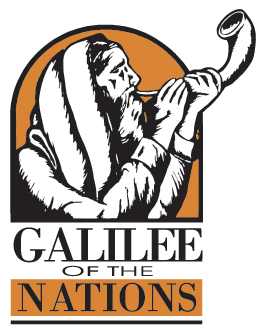
Hanukkah In The Writings of Daniel
Share
The Miracles, Mysteries and Histories of Hanukkah | Part 1
Hanukkah In The Writings of Daniel
While Hanukkah is not listed in the Bible as one of the God-prescribed Holy Days like those listed in Leviticus 23, it nevertheless is a Holy Day that, according to many scholars, does have roots in the Hebrew Bible. First, we'll take a look at some of those often mysterious, complex and obscure words of the prophet Daniel, and try to ascertain what those scholars claim to see. In a later installment of this series, we'll discover that there may even be a foretelling of Hanukkah in the Torah!
First off, we want to encourage you to dive into Daniel 11, and just be prepared: it is difficult to decipher, and easy to get lost in the details. We're just going to provide you with some paraphrased nuggets here for your consideration...
At Chapter 11's outset, Daniel predicts the then-forthcoming reigns of some of history's most famous (or infamous) conquerors: Xerxes of Persia (think the movie 300) and Alexander the Great. It was the latter that was largely responsible for the mass Hellenization that began in the fourth century B.C.E. This spread of Greek culture was exactly what "threatened to annihilate the people of Israel through assimilation," (Derek Leman) eventually culminating in the revolt that took place at the time of the Maccabees and the miraculous Hanukkah story.
Alexander's kingdom was "broken and divided" into fours, just as Daniel predicted in 11:4. A rivalry ensued between the Ptolemies of Egypt and the Seleucids of Babylon, and in the midst of these kingdoms was Israel--a land hotly contested between those opposing forces. According to Leman, "it was a combination of military conquest, political strategy, the ambition of a Hellenizing monarch, and treachery from Jewish nobles who preferred Greek ways that led to the Maccabean revolt and the Hanukkah story.
"Daniel's prophecy provides the reader with details leading up to the emergence of the evil Syrian king in the Hanukkah story, namely Antiochus IV. It was this Antiochus ("Epiphanes") who "began to openly persecute the Jews" (Parsons) around 167 B.C.E. "Among other atrocities, Antiochus appointed a Hellenistic 'High Priest' to the Temple, prohibited the study of the Torah, and desecrated the altar by requiring pigs to be sacrificed on it" (Parsons).
While some of Daniel's prophecies in Chapter 11 were fulfilled, and tragically so, there is yet an element that remains to be fulfilled: the coming of the anti-Messiah, that final evil ruler who will stand against and make war with God's people.
"A day is coming, [Daniel] would have us know, when the ultimate Antiochus will come. And like the Maccabeans and the hasidim [holy ones] and the faithful common people of the land in those days, we will be judged by our commitment to faithfulness to God and the ways of his covenant" (Leman).
Thank you for reading!
Check out Part 2 of this series: Hanukkah in the Book of Maccabees
